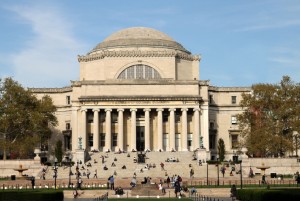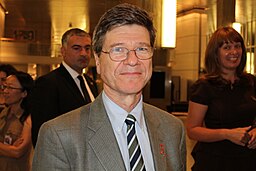By Clea Kolster, PhD student, Science and Solutions for a Changing Planet

The term ‘sustainable development’ was first coined in 1987 in the UN’s World Commission on Environment and Development report, Our Common Future. Almost 30 years later, the concept of sustainable development is more relevant than ever.
The definition given in the report is, to this date, the most widely accepted modern definition of the term: ‘Sustainable development is development that meets the needs of the present without compromising the ability of future generations to meet their own needs.’ Climate and society, energy, water, ecosystem health and monitoring, global health, poverty, urbanization, natural disasters, food, ecology and nutrition – these are some of the main problems that need to be tackled when discussing the possibility of sustainable development. They are all complex problems that require an interdisciplinary and analytical approach. Earlier this year, I joined a group of people doing just that.
On Friday April 3rd 2015, I entered the land of Ivy League elites of Columbia University to take part in the 5th Annual Interdisciplinary PhD Workshop on Sustainable Development. Having been on a year abroad at Columbia University during my undergraduate degree, I knew the spot pretty well and was thrilled about getting the chance to come back as a matured and informed PhD student ready and eager to present my work.
Arriving at the workshop, I struck up a conversation with some of the students around me. I quickly understood that a number of us had made the cross-Atlantic trip, with participants from Denmark, Italy, Sweden, France and even Australia. Students also came from Canada and Mexico, with a large majority attending world-renowned US universities, including Harvard, MIT, Yale, Princeton, UC Berkeley and of course Columbia.
Tackling sustainable development
The highlight of the first day was a keynote speech by American economist Jeffrey Sachs, head of the Earth Institute at Columbia University., Sachs has an incredible track record: he is a Quetelet professor (honorary distinction given to Columbia University professors, awarded to only four professors since 1963) of Sustainable Development, special advisor to Ban Ki-Moon, youngest economics professor at Harvard University (age 28), author of three New York Times bestsellers – and the list goes on.
One of the things that engrossed me most was his emphasis on planetary boundaries and the current ideological conflict between growth (mostly economic) and environmental sustainability. Sachs definitely got the whole room thinking about whether or not sustainable development is actually feasible and, for those like myself who desperately want that answer to be positive, what one can do to bring us closer to that goal: a world with sustainable economic, social and environmental objectives.
The rest of the afternoon featured sessions on a variety of topics from natural disasters – including the Venetian example of floods – to urban planning in China and development in India. After a long afternoon of presentations, I got the chance to network and socialize with the students. I met some very interesting individuals, most of whom, contrary to myself, feel as though they are economists before anything else, in spite of an earlier education in engineering.
On the second day, I was due to give my presentation as part of the Energy. In a small room filled with 10-15 other PhD students, all of whom were senior to me, and a few professors, I sat nervously waiting for my turn, beginning to realize that my presentation was clearly going to be one of the most “engineeringy” and technical of all.
I finally gave my 20 minute talk on the “Techno-Economic Analysis of the Link between Above Ground CO2 Capture, Transport, Usage for Enhanced Oil Recovery (EOR) and Storage”. I was happy to take some interesting questions at the end of it (which I hoped meant that the audience was actually interested by my topic) and later on at the coffee reception engaged in some stimulating discussions with some of my peers. It was clear that in spite of our dissimilar approaches, we had all contributed to responding to the question of sustainable development and its feasibility.
A look forward
Did you know that 1.4 billion people currently live in a state of extreme poverty at below $1.25/day? In fact, it will take a 4 to 5 time increase in total global output by 2050 to get poor countries to meet the $40,000 per capita income of rich countries today. With figures like these, it isn’t surprising that large groups of individuals around the world dedicate their time to assessing and analyzing the best ways of achieving sustainable development encompassing economic, social and environmental goals.
In my view, sustainable development is feasible, we can tackle climate change, we can reduce our exploitation of natural capital while promoting economic growth, we can bridge the gap between poor and rich countries; the problem is – as Jeff Sachs pointed out – a lack of trust. A lack of trust leads to social and political instability and these will always impede sustainable development around the world.
References
World Commission on Environment and Development – Bruntland Commission. 1987. Our Common Future. s.l. : Oxford University Press, 1987.
